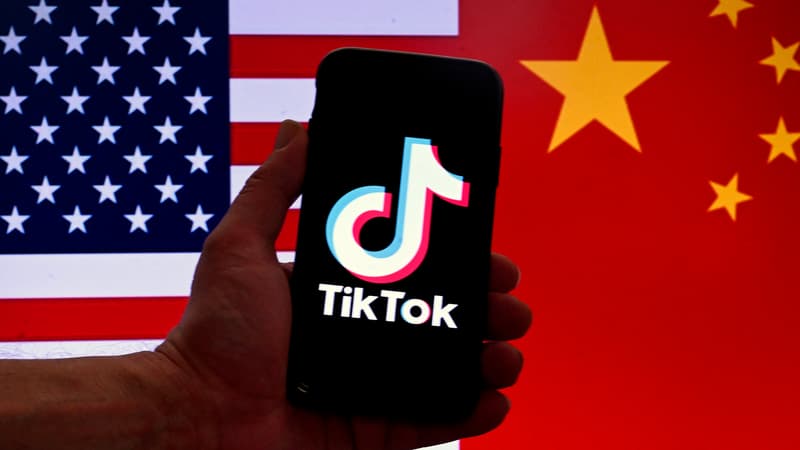It’s called a bad quarter hour. TikTok boss Shou Chew defended the company against him on Thursday, March 23, before the US Congress, while a bipartisan law, the RESTRICT Act, could lead to a ban on TikTok in the US.
The message is clear: to avoid banishment, TikTok is ordered to respect a long list of data and user protection imperatives and, above all, to cut ties with its Chinese parent company ByteDance, which also owns the network. social Douyin. A difficult position for the social network.
ByteDance is “a private company”
“The Chinese government does not own or control ByteDance,” defended Shou Chew during his keynote address. “It’s a private company.” And remember that the TikTok management has several American executives on board.
A defense that falters in the face of the statements by the Chinese Commerce Minister’s spokesman on Monday who announced that he is “firmly opposed” to the sale of TikTok, which would require authorization from the Chinese government, according to what the media reported. Wall Street Journal.
“I am one of those who do not believe that there really is a private sector in China,” replied the representative Anna Eshoo. A Chinese law on national intelligence obliges companies in the country to share their data with a simple request from the authorities.
Reacting to this hearing, a Chinese Foreign Ministry spokeswoman has since assured that Beijing “has never and will not ask companies or individuals to collect or hand over data from foreign countries, in any way that violates local law.”
The Texas Project, an impervious barrier with China?
As a solution to these concerns, the head of TikTok reiterated the promises of the “Texas Project”, which plans to host the data of US users only on national soil, on servers of the Texan group Oracle.
He also announced the development of a “firewall,” which was supposed to protect US data from any foreign incursion attempts, noting that the app was not available in China.
But at the same time, the leader acknowledged that the platform still had old US user data currently accessible on servers for Chinese employees.
It is not the data collection itself that worries the specialists who have studied the application’s code -which they consider to be similar to that of other social networks-, but rather what happens to it once it is transmitted to the TikTok servers.
“We (…) speculate on possible mechanisms through which the Chinese government could use unconventional techniques to obtain user data by putting pressure on ByteDance,” recalled the president of the Citizen Lab association, Ronald Deibert in a statement released before the hearing. and quoted by a member of Congress.
In fact, the place where the data is stored is not linked to the possibility of consulting it from another place. Above all, TikTok still refuses to commit to not leaving more Western user data accessible from China, even if it were stored in the United States or Europe.
TikTok, a “safe space” for young people?
Faced with criticism for the harmful influence of the application and its “addictive algorithm” on the mental health of its young users, the CEO of TikTok first highlighted the measures put in place, such as limiting viewing time to 60 minutes for those under 18 years of age or the prohibition of private messages to those under 16 years of age. But currently, there is no verification to ensure the age of the users, it is still declarative.
If of the 150 million users of the application in the United States, almost half are under 30 years of age, the leader also pointed out that those over 35 are using it more and more massively.
Meanwhile, teens following the app suffer from increased anxiety and depression, as suggested by a study published in the International Journal of Environmental Research and Public Health.
Violent content and misinformation
The social network is also fighting to remove content that highlights dangerous challenges, addictive or suicidal tendencies, but also disinformation videos, including those that could contaminate the democratic process. During the US midterm elections, a report shows that TikTok validated 90% of content containing false information, without banning the accounts that posted it.
In return, Shou Chew highlighted the massive investment in moderation, but took pains to elaborate on progress in this area.
In this context, I am not sure that the arguments of the president of TikTok, who presents the application as a tool for emancipation, creation and economic development, hit the mark among US elected officials, who seem more determined than ever. to ban the app.
Source: BFM TV


